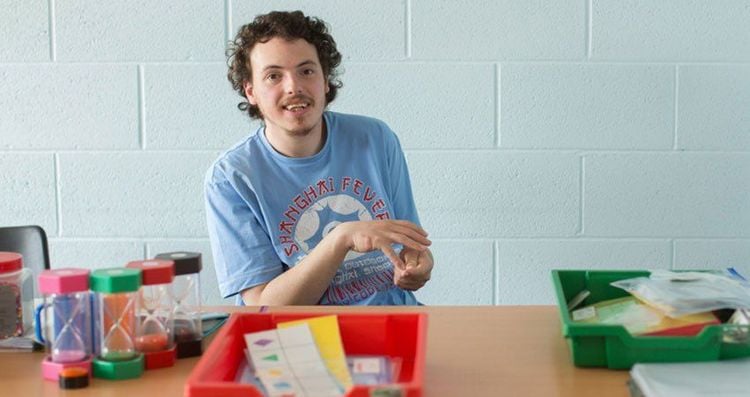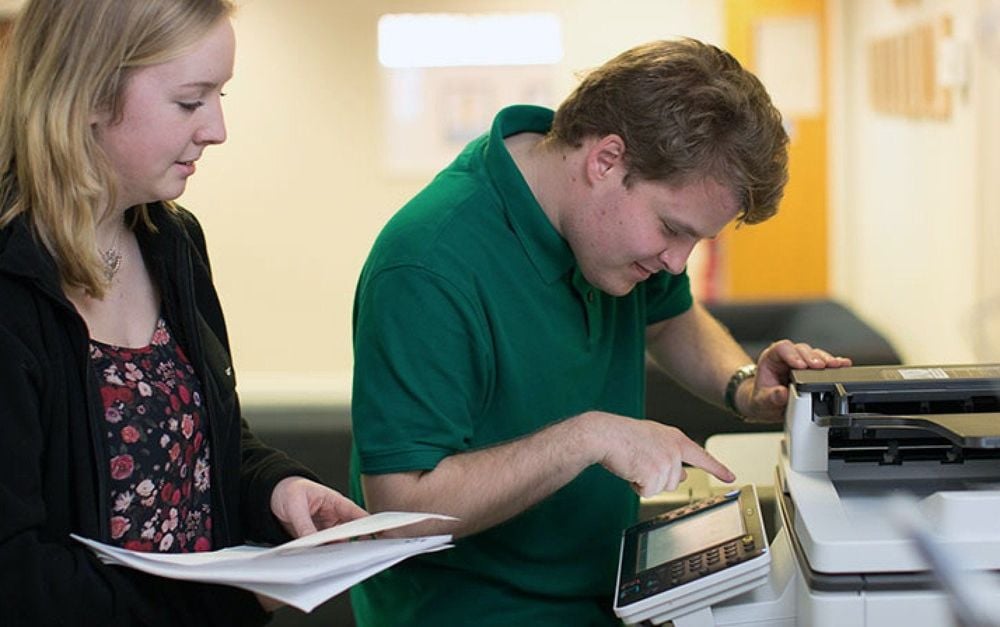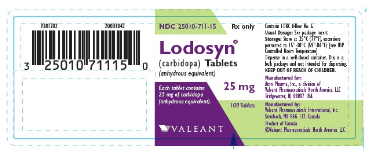This is an automatically translated article.
The article is professionally consulted by Master, Doctor Quach Thuy Minh - Pediatric Psychiatrist - High-Tech Unit for Treatment of Cerebral Palsy and Autism - Vinmec Times City International Hospital.According to statistics from the United Nations, currently 1% of the world's population (about 70 million people) is autistic. When it comes to autism, people often think it only happens in children, but in reality, there are many cases of autism in the community even in adulthood. The following article will provide you with more knowledge about adult autism.
1. What is autism?
1.1. Autism spectrum disorder (ASD) is a syndrome caused by a disorder of the nervous system development, affecting the activities of the brain. This syndrome includes impairments in reasoning, language development, communication skills, social interactions, and limited and repetitive interests and activities.
1.2. Is autism dangerous? Children with autism often have developmental delays, reduced cognitive abilities, reduced communication skills, behavioral and emotional abnormalities, and various sensory disturbances. Only about 20% of children with autism can communicate and learn but still have difficulties in social relationships, often have few friends and do not like to communicate and make friends with people around. The rest, 80% of these children continue to grow up and become adults with autism, accompanied by mental retardation, epilepsy, depression, etc., so they often live in isolation and often have anxiety. haunting fear. People with severe and incurable autism will not be able to integrate into society, not be able to support themselves when they grow up, becoming a burden to their families and society. Currently, in Vietnam, many studies show that the number of autistic children coming to hospitals for diagnosis and treatment is increasing. At the National Children's Hospital, this rate has skyrocketed 50 times compared to the years 2000 - 2007. In Ho Chi Minh City, this rate has increased to 160 times. Therefore, autism is a problem that needs the attention of the whole society because after only 10 to 20 years, if we don't pay attention to early detection and find appropriate intervention methods, autism will become a disease. difficult to treat and cause serious consequences to the family and society.

2. Adult autistic people
2.1. Causes of Autism in Adults When it comes to autism, most people think it's just a fluke or some other mental illness that can be passed on to posterity. However, researchers have not fully and accurately found out which genes or gene combinations cause this disease. He detects and treats it in time until adulthood becomes an adult with the disease and its impact. of autism is more serious. Regarding the cause of autism, current researches do not dare to confirm accurately and comprehensively. Theories suggest that autism is caused by biological, environmental, or both.
Genetics: In fact, if someone in the family has autism or some other mental illness. can be passed on to future generations. However, researchers have not fully and precisely figured out which genes or combinations of genes cause this disease. The mother infected with Rubella virus during pregnancy makes the fetal brain underdeveloped, causing autism. Some thyroid diseases that cause tyroxin deficiency in the mother during pregnancy are also thought to cause changes in the fetal brain, leading to autism. Maternal diabetes during pregnancy doubles the child's risk of autism. Certain medications used during pregnancy such as tranquilizers, valproic acid, stomach medications, and arthritis are also thought to be risk factors for autism in children. Environmental exposure to toxic substances such as pesticides and herbicides, constant exposure to high concentrations also causes genetic abnormalities, and is prone to genetic mutations that affect pregnant mothers. . If pregnant women experience stress, fatigue, or stress during pregnancy, there is also an increased risk of having a child with autism. 2.2. Manifestations of autism in adults How to communicate Adults with autism will face problems with language, gestures and emotional expression in the process of communication. Facial expressions lack expression, unnatural body postures and repetitive use of language. They often repeat more than once a word or phrase that they have heard before. They live in isolation and do not tend to make friends or talk or share with anyone, including their peers or family members. Difficulty in caring and sharing. They cannot understand the feelings of others, lack empathy.
In everyday behavior People with autism often focus and correctly use an object that may be familiar or dramatic, such as the wheel of a car, rather than the entire thing. The act of holding onto things and not allowing others to touch them is one of the signs of autism in adults. They often focus on a certain subject and ignore the opinions or actions of others such as being fascinated by video games, trading cards, or license plates, interested in understanding topics. unrealistic... Stereotypical mechanical behavior. Some patients have aggressive behavior, hyperactivity, uncontrolled emotions, and explosive outbursts.
How to work If they are still in school, people with autism have learning difficulties, slow learning, poor academic results and tend to isolate from friends. If the patient has gone to work, he often does not complete the assigned task well, the work proceeds in a stereotypical fashion. Often offends others because people with autism have difficulty hearing and absorbing and understanding the meaning of other people's sentences.
>> Signs of autism in adults

Psychological intervention To be able to improve problems with language, communication and the ability to act independently, adult autistic people must receive positive and early psychological intervention (with children and adolescents). children, duration from 20-25 hours/week). However, for adult autistic people, behavioral interventions aim to build good habits, know how to self-control emotional behavior to adapt to the surrounding environment, know how to protect themselves from danger. risk and develop appropriate adaptive behaviors. During psychological intervention, specialists will assess the strengths or weaknesses of the patient to orient a career that is suitable for the ability.

Allowing people with autism to work into the community Adults with mild autism can still do some things according to their ability. Family members should allow the patient to receive psychological intervention, find out the patient's strengths and let them work. Doing so will help them be close to the community and increase their ability to think, act and not be isolated from society.
Pay more attention to people with autism For people with autism, they need more attention from family and society. Relatives should talk often, guide patiently, always encourage and encourage people with autism. encourage good behavior, create conditions for them to interact with people, take them out, integrate with nature, walk, exercise,... It is advisable to limit letting autistic people watch TV or hide in one place. .
Depending on the aptitude of each adult with autism, the following occupations may be suitable for an adult with autism as long as there is a supervisor nearby such as: Art, music, painting, computer, math Studying, doing housework,.... Regarding leisure hobbies, people with autism like music, swimming, camping, assembly, chess, chess,...
Please dial HOTLINE for more information or register for an appointment HERE. Download MyVinmec app to make appointments faster and to manage your bookings easily.














